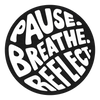
Hi, my name is Dug...
If you've seen Pixar's UP, you know the talking dog named Dug and his attention problem. He loves to chase after squirrels, much like the "squirrels" we chase in today's attention economy. (Fun fact: Dug was also in Ratatouille).
There's so much vying for our attention today. In fact, you might have heard a notification ding or two pulling at your attention in the last minute, but stay with me—this is important.
By now, we all know the consequences of distracted driving, but it still happens. And during your meetings, I'm sure your laptop's upper right-hand corner is like a notification meteor shower with IMs, texts, and emails clamoring for your response when you should be paying attention.
I get it—most of our meetings stink. Heck, I bet you've joined several Zoom or Team meetings, and nobody acknowledges your presence, and you wonder why you're there - which is a shame because it takes so little time for the host to let someone know that they see them.
Where your attention goes, your energy flows.
In the "old days," also known as the 70s, the 1970s, that is, we didn't have so many things competing for our attention. That's not to say it was better back then - some might remember shag carpeting and Hungry Man Dinners.
I appreciate today's choices and the tools that give a voice to those who didn't have one back then. Despite the t-shirt, I also love our phones, even though they're highly engineered squirrels.
We live in a time with unprecedented choices, wealth, wisdom, possibilities, and, unfortunately, distractions enticing us to look here, not there. If we don't pay attention, we'll end up chasing one squirrel after another, never creating the better tomorrow we desire.
And it all starts with what we consume. We understand eating whole foods, fruits, and veggies rather than Taco Bell is best. The same principle applies to the content we consume with our eyes and ears.
Is it kind, thought-provoking, and nuanced? Does it invite us to connect with our emotions differently? Or are we consuming empty calories that taste yummy going down but never leave us satiated or contribute to our health?
But I, like many, have a perfectly imperfect relationship with attention. I enjoy listening and watching what I like because it makes me feel smart, and when my attention is weak, I love Cheddar and Sour Cream Ruffles more than kale. (Fun Fact: They were my secret fuel as I cycled across the country). I have moments when I mindlessly scroll or am not fully present or listening, but if you know me, you know I won't talk to you when I'm driving.
It seems that the longer I practice mindfulness, there are more ways to define what it is—clever tweaks here and there to gain more attention to a different perspective. So, let's place the definition on the back burner for now and focus on what it does for us.
To start, it can help us pay attention and be more thoughtful. Give this a moment to breathe - soak it in. Now, I invite you to name one aspect of life where this isn't essential.
It's about being thoughtful about how you show up for your next meeting or how you make eye contact with your cashier or barista, who are quickly passed by in today's fast-paced world, or listening in such a way that you can hear someone's inflection change and then ask, "Can you tell me more about what I just heard?"
It's about being intentional about how you spend your time, what makes you feel alive, and what it means to be a human being rather than someone spinning on a hamster wheel.
I don't know what the future will bring, but I'm confident there will be more choices, it will feel faster, and those who will achieve inside-out success will be the ones who can stop chasing the squirrels and be more thoughtful about how they wish to keep swimming.
